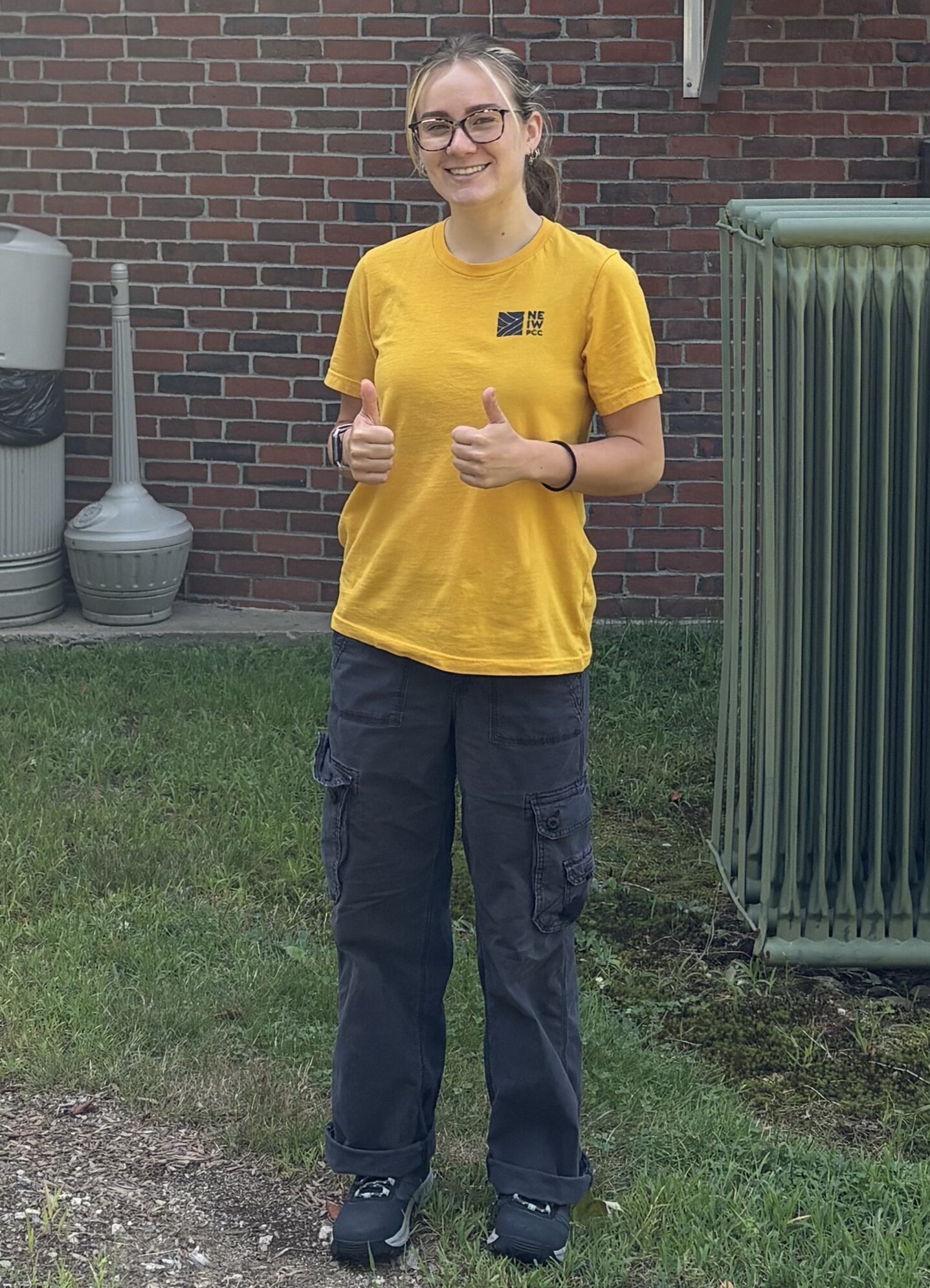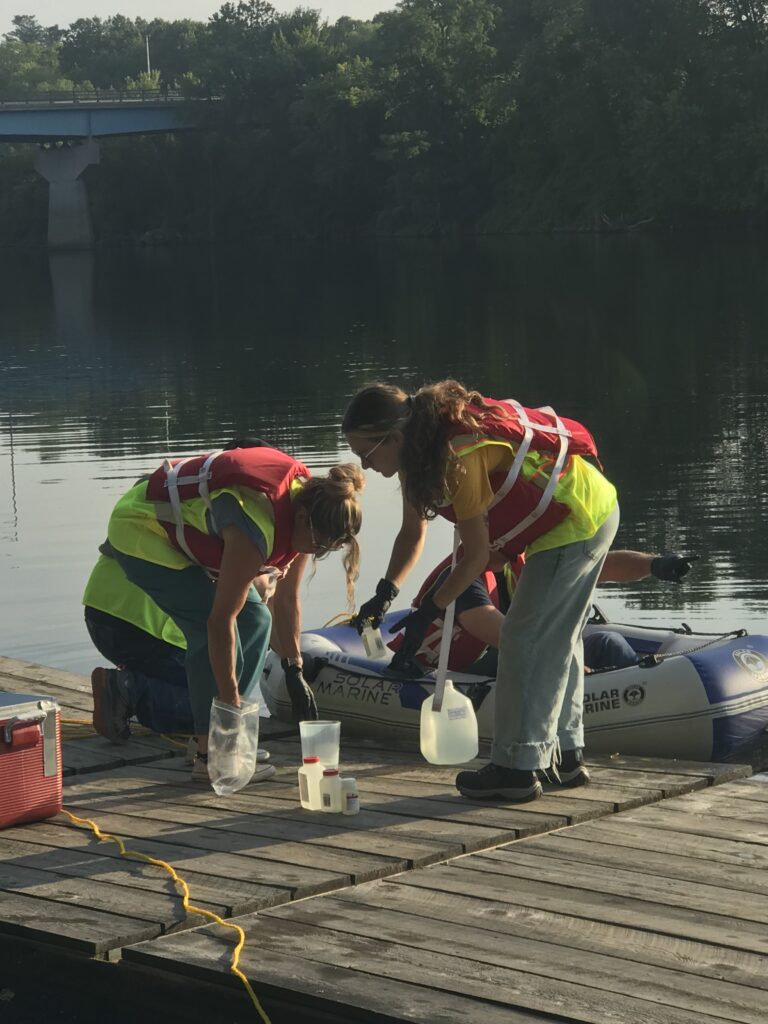
Two interns who spent the summer receiving training from wastewater operators in Nashua now have the opportunity to receive an entry-level wastewater license through the Emerging Water Professionals Internship Program (EWPIP). NEIWPCC created the 13-week paid training program to address the growing shortage of wastewater professionals in the state.
The program, which is in partnership with the New Hampshire Department of Environmental Services (NHDES) and the Nashua Division of Public Works, began when NHDES reached out to NEIWPCC to discuss their need for an internship that provides a direct pipeline for employment in the wastewater industry.
“They knew that NEIWPCC has experience running programs like this,” said Environmental Analyst Daphne Short, referencing the long-running Youth and the Environment Program (YEP), which ran concurrently with EWPIP this summer. Short helps support both the YEP and EWPIP programs.
The U.S. Environmental Protection Agency created YEP in 1990 to provide young adults with paid opportunities at a wastewater treatment plant in Lowell, Massachusetts. The program provides students with daily lessons on environmental topics and includes field trips to local sites to connect with experts in the field.
“Through YEP, our goal is just to introduce students to the wastewater industry and open their eyes to careers in the environmental field,” said Short. The EWPIP internship takes it a step further by providing a direct pathway into the wastewater industry. “The Nashua internship offers the opportunity for a long-term, stable career in the field,” she said.
This summer, two EWPIP interns worked alongside operators at the Nashua Wastewater Treatment Facility, where they received on-the-job training in various positions.
“We spent about two to three hours per day in the lab doing testing and learning basic laboratory calculations,” said Mina Regnery, one of the two interns participating in EWPIP. In the lab, the interns gained experience performing procedures such as testing samples for biochemical oxygen demand and total suspended solids, as well as pH monitoring and calibration. Additionally, they had the opportunity to travel with laboratory staff to locations around Nashua, where they acquired samples from different collection sites to ensure that regulatory permits were in compliance. “I love looking at things under the microscope so working in the laboratory was my favorite part,” said Regnery.
In the afternoon, the interns worked with foremen and operators to learn about the primary and secondary treatment process. Their tasks included monitoring the flow of wastewater, adjusting pumps and blowers, monitoring sludge depth to maintain an efficient process and other day-to-day operations.
Regnery decided to apply for the EWPIP internship after becoming interested in water quality through her classes at the University of New England, where she is a rising senior pursuing a double major in sustainability and business. “I became really interested in the wastewater treatment process and I am from Nashua, so this internship was an awesome opportunity to find,” she said.
The second intern joined the program seeking a pathway into a new field where he could utilize his previous mechanical experience in pursuit of a long-term career.
“We were seeking candidates who would find value in this program,” said Short. “It can be hard when you are trying to get into a new career and need to stop working to attend school.”

Each week, a day was set aside for the interns to pursue wastewater training opportunities outside of their experience at the plant. During this time, they participated in NEIWPCC’s two online self-paced courses, Wet Weather Operations and Wastewater Ethics. They were also provided with textbooks and other resources to help them prepare for the certification exam.
“Having a license shows employers that the worker is planning to continue in the field,” said Short. “This is a way for the interns to get their foot in the door.” Completion of the NHDES Grade I certification exam permits individuals to apply for entry-level positions in the wastewater field.
Both interns are planning to take the certification exam, which consists of 100 multiple choice questions, during the next testing session. Regnery intends to continue pursuing a career focused on protecting clean water, either in the wastewater or drinking water industry. “This internship has deepened my interest in water resource management and confirmed my inspiration to continue working in the environmental field,” she said.